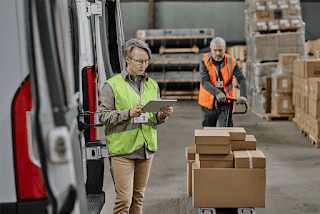Mitigating Risks in Global Logistics: Insurance and Contingency Planning.
Global logistics, with its complex web of transportation and international regulations, with many risks involved. From shipping delays to customs complications, businesses face numerous challenges when moving goods across borders. In this article, we'll explore strategies for mitigating these risks.
International freight shipping involves a multitude of risks, including:
- Shipping Delays: Delays can occur due to weather, port congestion, labor strikes, or unforeseen events like the COVID-19 pandemic.
- Customs Complications: Navigating complex customs regulations and documentation requirements in different countries can lead to clearance delays or even confiscation of goods.
- Theft and Damage: Goods in transit are susceptible to theft, damage, or loss, which can result in financial losses.
Cargo insurance is a crucial tool for businesses engaged in global logistics. It provides financial protection against the risks mentioned above:
- Types of Cargo Insurance: There are various types of cargo insurance, including All-Risk, Named Perils, and Warehouse to Warehouse, each tailored to different levels of coverage.
- Coverage for Delays and Damage: Cargo insurance not only covers the loss or damage of goods but can also include coverage for delays, providing compensation for additional expenses incurred due to unforeseen hold-ups.
- Peace of Mind: With cargo insurance in place, businesses can have peace of mind knowing that their financial investment is protected, even when the unexpected occurs.
In addition to cargo insurance, businesses should develop contingency plans to address potential disruptions in their global logistics:
- Alternative Routes: Identify alternative shipping routes and methods to circumvent delays or disruptions. Diversifying transportation options can be invaluable.
- Clear Communication: Maintain open communication channels with your logistics partners, suppliers, and customs authorities. Swift communication can help resolve issues promptly.
- Documentation Compliance: Ensure all documentation is accurate and compliant with the regulations of both the origin and destination countries. This can minimize customs-related delays.
By developing contingency plans, staying informed about regulatory changes, and maintaining clear communication, companies can navigate the complexities of international shipping with confidence, ensuring that their supply chains remain resilient and reliable in the face of unexpected challenges.






Comments
Post a Comment